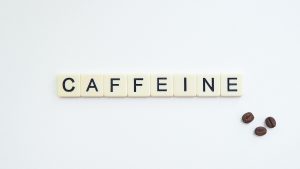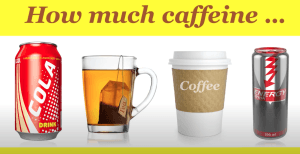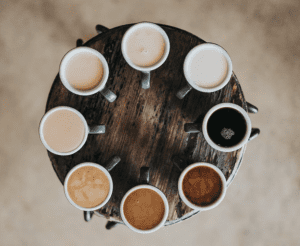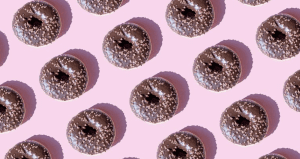This may appear to be an unusual topic for Vibe Coffee to cover, but one of the Vibe founders loves coffee (obviously) AND has severe Asthma. So this topic is dear to our hearts.
And because there is so much research on the topic of coffee helping Asthmatics, we wanted to do our part to raise awareness.
But first, a brief/quick lesson on the condition of Asthma and how it affects the lungs. Asthma affects people in 2 ways:
- Inflammation: Inflammation is an asthmatic condition where the airways of the lungs become swollen and clogged with mucus and fluids causing restrictions in breathing.
- Bronchospasm: Bronchospasm is when the muscles around the airways tighten and contract as they struggle to keep the airways open. In some instances, this occurs during exercise.
Understanding the above two asthmatic characteristics is important when thinking about the impacts coffee is known to have. But it’s not coffee that is seen to help, it’s caffeine.
How does caffeine help Asthma?
The US National Library of Medicine had this to say….
Caffeine, even at ‘low’ doses, has been found to improve lung function for at least four hours after ingestion.
The same medical paper from the US National Library of Medicine says caffeine “is a weak bronchodilator and reduces respiratory muscle fatigue.”
A separate study found people who drink coffee every day have 29% fewer asthmatic episodes. This study also tested people who drank other caffeine-filled drinks such as tea, but the same result did not happen due to there being a lower concentration of caffeine.
Stick to 4 cups per day (max):
The Food and Drug Administration (FDA) says adults can safely consume up to 4 cups of coffee per day. This is deemed a “safe dosage”. The FDA has also come forward to say caffeine can be good for asthmatics.
Coffee is the best source of caffeine:
With the above information in mind, people will wonder which is the best source of caffeine! The answer is easy, it’s coffee.
The FDA provides a guideline of caffeine concentration for the top four known caffeine-filled drink types and how they compare to each other.
As a quick summary, this is how the above drinks stack up…
- A 12 ounce “Cola” drink has 30 to 40 milligrams of caffeine
- An 8 ounce Green or Black tea has 30 to 40 milligrams of caffeine
- An 8 ounce Energy drink can have between 40 to 250 milligrams of caffeine
- An 8 ounce coffee has 80 to 100 milligrams of caffeine
The “Caffeine Caveat”:
The research shows the positive impacts of caffeine on asthmatic sufferers but please understand these studies were done with black coffee. If an asthmatic sufferer has 4 coffees each with milk and two sugars, the same impacts will not happen. Put simply, sugar and dairy are common triggers of inflammation and bronchospasm for asthmatics.
This is why Energy drinks, with their high caffeine concentrations, do not help asthmatics: they are full of other chemicals, sugars etc…
To further support the need to avoid milk and sugar in coffee for asthmatics, researchers from John Hopkins Medicine in the US have identified the top five food classifications known to affect asthmatics…
- Sugar and Fatty Foods
- Diary
- Processed foods
- Wine and Beer
- Artificial Sweeteners (also found in energy drinks)
Final Word:
We at Vibe Coffee are not promoting the use of caffeine as a sole method to improve the quality of life for asthmatics. There are many things asthmatics need to do in their daily life to keep this condition under control. Caffeine will never replace the need for the proper medications, a strict diet, and a healthy way of life.
But the next time you have a sip of your Espresso from your Vibe Coffee pods or Vibe Coffee Beans (with no milk or sugar), just know, your lungs might be benefiting from good vibes as well as your state of mind:)
May your good vibes keep on coming.





